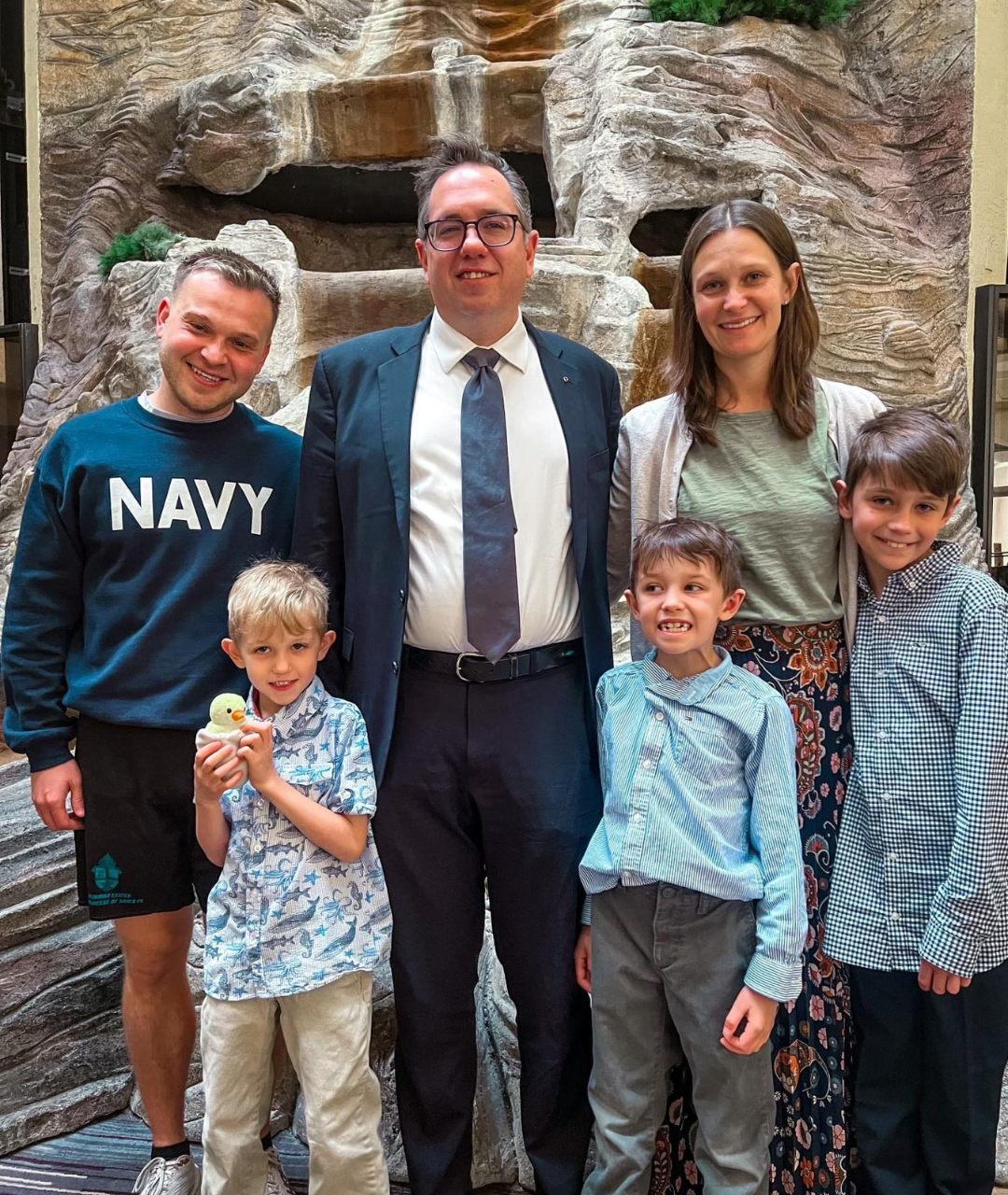
Patrick Mason -
Curious Conversations
Patrick Mason is a top executive with the Knights of Columbus — the United State’s largest Catholic fraternal organization with more than two million members. The Knights are also a Fortune 800 company with charities in Mexico, Cuba, the Philippines, Ukraine, and more. St. John Paul II called the Knights the “strong right arm of the Catholic church.” In 2017 Patrick became the youngest member of the Board of Directors at just 36 years old by being elected as the Supreme Secretary — the organization’s third highest position.
I caught up with Patrick to pick his brain about what it's been like to see such success at such a young age, and how his perspective on purpose and opportunity has changed. Here’s what he had to say:
HUMBLE BEGINNINGS LEAD TO GREATNESS:
Patrick began as a lawyer by trade, practicing in Gallup, NM (where I grew up!). He joined his local Knights council, and when its Grand Knight was tragically killed by a drunk driver, and its deputy grand knight in hospice care, Patrick became the council’s leader while only in his 20s. “I remember being a Grand Knight at 24 and learning about the structure of the organization. A friend asked me ‘Do you think you’d ever be a Deputy’, and even to that I thought ‘I don’t know.’ You never really expect to become things like that... So it’s one of those things you never expected, but when God puts an opportunity in front of you, you have to have the courage to take it.”
3 QUESTIONS TO KNOW IF GOD IS CALLING ON YOU:
Patrick told me that his journey to such a prestigious position with the Knights hasn’t been an easy one: “Me and my wife joke about it sometimes...With six kids, two dogs, and a cat, moving across the country, away from my hometown, it wasn’t an easy choice. But when God presents you with such an opportunity you can’t really ignore it.” I think this idea is something people are bewildered by – how do you know when God is calling on you, and it’s not just something you’re mistaking as a sign? Patrick broke down his way of knowing this through three questions:
(1) Is this a good thing? If it’s not a good thing, then you have your answer – God’s not calling you to do something wrong.
(2) Is this something I want to do? God wants us to be active participants in our lives, so God wouldn’t ask you to do something you wouldn’t want to be active in.
(3) Is this something you can do? As I said, the decisions regarding my place in the Knights affected a lot of people other than me – namely, my family. Sometimes because of family or other commitments you’re not capable of doing something, and God wouldn’t ask you to do that.
“So, if you’re capable of doing something, and you want to do it, and God has given you the opportunity, I think you can know that God would support you if you say yes.”
IF YOU STOP ADVANCING YOU’LL FALL:
“It’s very intense. Being an executive at this level is not for the faint of heart... I think I have a duty not just to act for the good of the organization, but to constantly figure out how we can make the organization better. That’s part of the mindset shift you need – it’s not just about doing what’s asked of you, it’s about going beyond that and expanding what can and should be asked of you. If you stay right where you are, you’ll just fall away.”
ACHIEVING THE IMPOSSIBLE IS ACTUALLY POSSIBLE:
One thing I learned studying communication that really stuck with me has to do with learning how to recognize your role in a group setting. Everyone has a select set of skills and talents – there’s the leader, the note-taker, the debater, etc. I wanted to know if Patrick felt like he knew what his role in a group was, or if that was something he learned along the way. He was familiar with recognizing one’s own unique role, and told me: “I’m not the guy writing the manual, or public speaking, or fixing operations. My role is to support my team, and act as an advocate for them... There’s a quote I use a lot from The Effective Executive which says: Don’t hunt for genius to fill the impossible job, help the common man achieve the impossible by doing what they’re best at. You have to learn what people are best at and let them grow there. When you identify the different strengths in a group you become unstoppable, and the weaknesses each member has as an individual go away.”
YOUR TEAM IS BESIDE YOU, NOT BELOW YOU:
“Each of my direct reports have a large number of people under them, and one thing we really worked on was to stop thinking of our teams as the people ‘under’ you and start thinking of them as your colleagues; so, the VPs, even though they may each have their own departments, they’re the team. So sometimes something that may be best for the organization as a whole may not be best for a particular team member and their colleagues, but when you can keep the vision of the organization in check, that’s when things improve.”
PATRICK’S ADVICE:
“Don't be afraid of the unknown; take action.”



